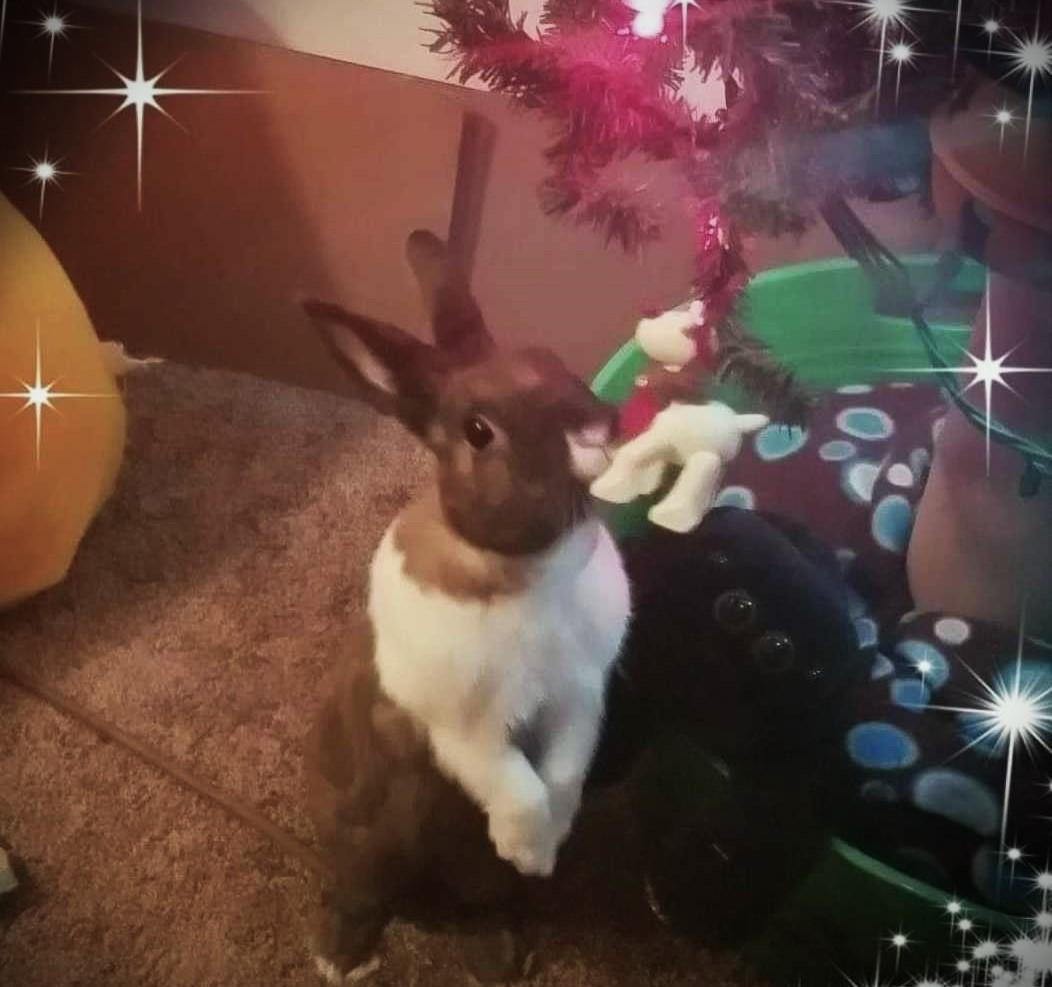Keep Holiday Celebrations Safe for Exotic and Pocket Pets

- posted: Dec. 15, 2023
Keep Holiday Celebrations Safe for Exotic and Pocket Pets
While we know festive foods like chocolate and tinsel on the tree can be holiday hazards for dogs and cats, what about pets like rabbits, guinea pigs, birds or reptiles? Let’s learn some “dos” and “don’ts” to have a safe holiday season with an exotic or pocket pet.
Holiday decorations can potentially pose a hazard to any pet, but use particular caution with extension cords and Christmas tree lights if you have ferrets or rabbits. Don’t allow pets to roam free in the house where they could come in contact with cords—rabbits have a particular affinity for chewing electrical cords! Curious ferrets may also try to climb Christmas trees. Also be careful with scented candles, scented oils or wax melts and air fresheners which may be hazardous to birds and other animals with sensitive respiratory systems.
Lights, decorations, and tinsel on the tree can all pose hazards for pets like birds, reptiles or pocket pets if they decide to try to chew on these items. Ribbons and wrapping paper can also cause issues if pets try to eat them. Keep pets in confined area or playpen or block/fence off the tree to prevent access. Dogs and cats should also be kept away from the tree and its decorations.
The tree itself, whether real or artificial, may also cause problems if pets ingest pine needles or drinks treated tree water. Other festive plants that are toxic to pets include holly, mistletoe, poinsettias, amaryllis and lilies. Some may cause mild symptoms like stomach upset but others can be deadly. Make sure to keep these out of reach or out of your home if you have pet birds, reptiles or small mammals as well as dogs or cats who may become sickened by snacking on holiday plants.
DO feel free to buy appropriate toys or treats as presents for your pets. Birds and reptiles enjoy enrichment toys. Ferrets, rabbits and guinea pigs love sleeping bags and hideaways. Treats such as carrots, celery, cranberries (fresh or unsweetened dried), or fresh green beans can be offered in moderation. Cranberries are also OK as an occasional treat for most birds and herbivorous or omnivorous reptiles (don’t feed cranberries or other plants to carnivorous animals like snakes). Avoid sugary treats, chocolate and anything with alcohol. If in doubt about whether or not a pet can eat a certain food, leave it out!
Exotic and pocket pets need not miss out on holiday fun, but be sure to allow them quiet areas to get enough rest, do not allow guests to handle pets without supervision and make sure cages are secure. Don’t let small pets roam free if there are a lot of people around to avoid accidents, and plan ahead if you have to travel with your pet or leave them in the care of someone experienced in caring for a bird, reptile or small mammal. We hope you have a happy and safe holiday season!
This blog brought to you by the Patton Veterinary Hospital serving Red Lion, York and the surrounding communities.
https://blog.omlet.us/2022/11/21/christmas-treats-for-rabbits-and-guinea-pigs/
https://www.thesprucepets.com/common-plants-that-are-toxic-to-birds-390817
Location
Patton Veterinary Hospital
425 E Broadway
Red Lion, PA 17356
